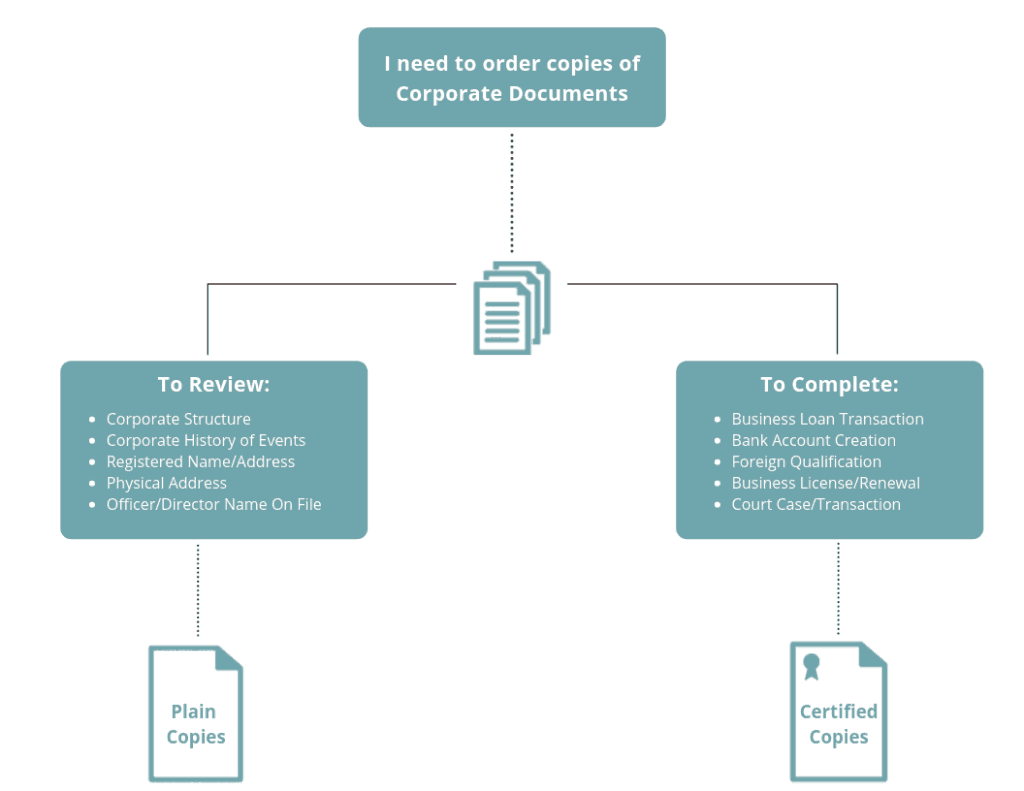A very common question when it comes to ordering corporate documents is whether or not to get certified or plain copies. The answer to this question depends on the situation and what you need the copies for. But first, let’s go over what a Plain Copy is compared to a Certified Copy.
What’s the difference?
A Plain Copy of corporate entity documents is simply a photocopy (or digital copy) of a particular (or all depending on what you request) business document. It’s a copy of what the state office has on record. There are no endorsements, stamps or seals on a Plain Copy.
A Certified Copy typically includes an additional page with a certification stamp and signature stating that the document(s) are true and complete copies as filed for record in that office. This indicates they have reviewed the record in its entirety and certify that what is provided is an accurate production of the original charter documents.
If the original corporate documents are ever lost, requesting a certified copy of all documents on file is a good way to obtain another true copy of the documents on record with the state.
Note: Documents titled as the “Original Filing” are the initial registrations that were submitted when the business was first filed with the state office, it does not mean it’s an “original copy with actual signatures”. Example: for an MN Corporation it would be a copy of the Certificate and Articles of Incorporation, for an Assumed Name it would be a copy of the Certificate of Assumed Name, etc.
One thing to keep in mind is that a Certificate of Good Standing is not the same as a Certified Copy of a document. A Good Standing is a certificate declaring the entity is in compliance, not withdrawn, and in “good standing” with the state as of the date of the certificate. Corporate copies are usually ordered in conjunction with a Good Standing.
Why is this important to know?
It’s important to know the difference to be able to tell which type of document you have in your possession, or which you need to request. It’s also important to know the difference because the two types typically cost different amounts.
In what situation would I get plain copies?
Plain copies are good to obtain when there is a need to perform a review of corporate structure, the corporate history of events, registered name/address, physical address or officer/director names on file.
In what situation would I get certified copies?
Certified copies are usually needed when dealing with a loan transaction or closing, opening a bank account for the business, being submitted to foreign states to qualify, renewing a business license, or used in connection with a court case/transaction.

Why depend on Capitol Lien’s team of Research Coordinators for these?
We understand the importance of having timely and accurate corporate records to meet business transaction requirements. We deal with these types of documents daily. Whether you need to obtain documents or file new ones, we can help you with any corporate need.
I’m still unsure of what type of copies I need, now what?
As previously stated, determining the type of copy depends on your situation and reason(s) for obtaining the documents. An attorney can help determine what you’ll require given your circumstances.
